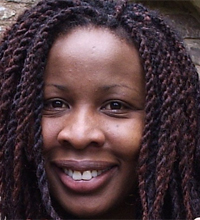|
Where were you when history was unfolding on the shores of America
on the 4th of November 2008? On the other side of the Atlantic
(here in the UK), I chose to watch on the BBC, minute-by-minute,
the arrival of a new chapter in America’s history books. After
an intense night, at around 4 am, the verdict was given. The American
people (and indeed, the world) were rewarded for their desire for
change and hope for a new and better future. The first black man,
an African-American, was elected as president of this century’s
leading superpower. Barak Obama has risen from obscurity to the
global stage as the leader of the Western (free and democratic)
world.
It was a momentous victory that inspired pride and vision. Truly,
it is rare occasions like these, which cause an outpouring of cliché
and commentary. The media, minions, and millions across the globe
were revelling in rhetoric: ‘dreams can come true’,
‘miracles do happen’, ‘fiction has become fact’,
‘the American dream concept (that long-held fantasy) has proved
to be a reality’, and on and on.
The cliché that continues to come
from me in discussions with family, friends, colleagues, and even
strangers, is: ‘I never thought I would live to see the
day when a black man became president of America’. To
be perfectly honest, I never perceived it, nor conceived it in the
realm of my imagination. Not surprising, as I was raised in an era
blighted by subtle and overt racial prejudices, encountered during
my upbringing and schooling years in the Middle East, US and UK.
In the main, for most of my thirty-seven
years, I have been surrounded by the white populace (both in terms
of my schooling and work settings). It is these white-dominated
environments that have been my daily truth, and fed my aspirations
as a young black woman. Therefore, it never crossed my mind to dream
or imagine that such an event could occur in this century, let alone
in this decade.
For many black people born before the 80’s (I speak from my
experiences), the truth of the plight of the black man globally,
both in the first and third worlds, caused many to stop believing
in the dream that one day a black man would ever have the ‘top
job’. For most of the black masses in the West, the only grass-roots
dream available to them is to: ‘survive life, have a good
job, and raise a family’; in the developing nations, this
dream is further muted.
Decades of the deflowering of the black
man has meant that the drive to dream for, and achieve the impossible
has remained stifled, and a daily battle. Of course, countless many
have continued the struggle in their various corners of the earth,
be it as an activist in Australia, a teacher in England, a minister
in South Africa, or a senator in America. Definitely, the face of
the struggle that I talk about, is evolving: from slavery;
to the right to vote; to equal rights at work; to what I would call,
an eradication of the racist DNA that is endemic to the American
gene pool (which of course, equally affects many other Western nations
in a similar fashion).
In light of this pervasive DNA, we
cannot talk about an ‘ultimate victory’ for the black
man at the entrance of President-elect Obama. However, what we can
take away from this incredibly symbolic outcome is a shift in humankind
that is moving from a place of discord and polarisation amongst
racial communities, towards one of working towards greater unity
and understanding. It is significant that Obama arrives at a pivotal
moment in our times, to act as a key to bridging the divide between
black and white, past and present, and play a vital role in moving
people forward towards a post-racial American world.
In my time, I have witnessed three life-changing events of this
magnitude, both incredible and incredulous: Nelson Mandela’s
release and presidency in South Africa, the 9/11 bomb attacks, and
now the election of the 1st black president of the United
States. As an African and as a Westerner, I am proud to have played
my part in the role of a witness to this historic event. Sure this
is only the beginning, and the task that lies ahead for Obama is
monumental in terms of rebuilding the wasteland that has been created
by the Bush-Cheney years – particularly, in terms of the global
economy, and international policy.
In addition to this, he will encounter
a lot of opposition from his critics (let us not forget that he
won by only a slight majority, in terms of the popular vote), suffice
to say that as he enters his term of office in the White House,
he will in fact be entering a ‘lion’s den’ where
many will seek to devour him. As a black man, he will have to work
twice as hard as any of the 43 white presidents that have gone before
him – to prove his promise of bipartisan and pragmatic leadership
to the American people, and the world. It is unlikely that a term
of four years will be sufficient to re-establish a paradise that
recaptures the essence of the American Dream.
However, in as much as, Obama faces
a colossal task ahead, it is important not to minimize the symbolic
victory that has been achieved by Obama because he has opened up
the gates for people from every corner of the pigmentation spectrum,
to make a bid not only for this ‘top job’ of presidency,
but for top jobs in every aspect of industry and society. He has
given people of colour (ethnic minorities) permission to dream again.
Thus, his campaign manifesto ‘yes, we can’ has
indeed raised the benchmark across the world!  |
|
|
|











![]()
![]()

